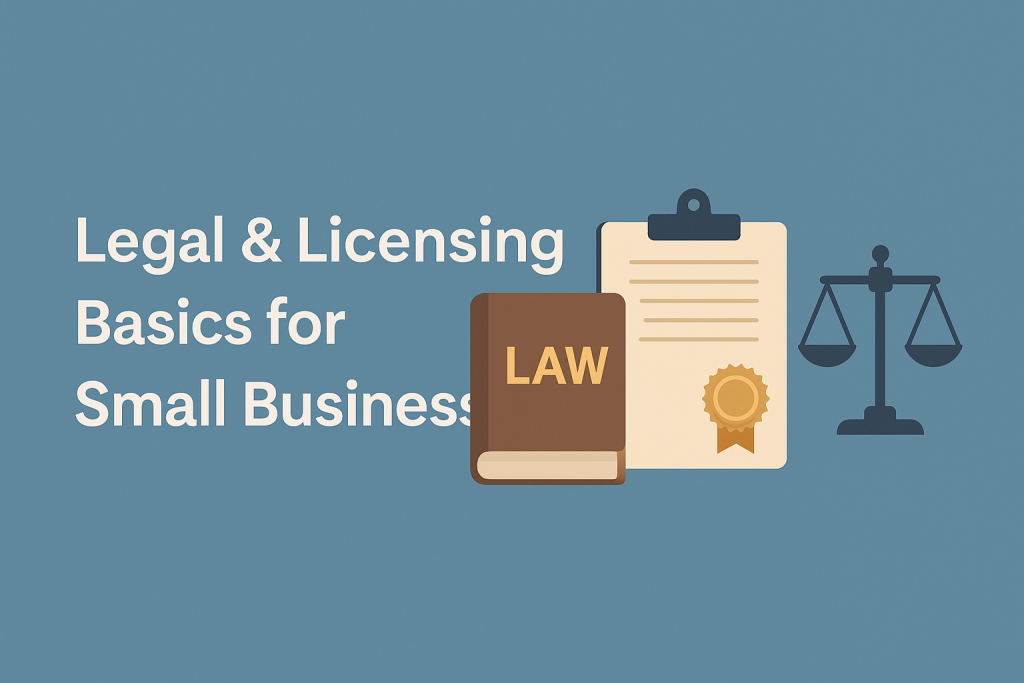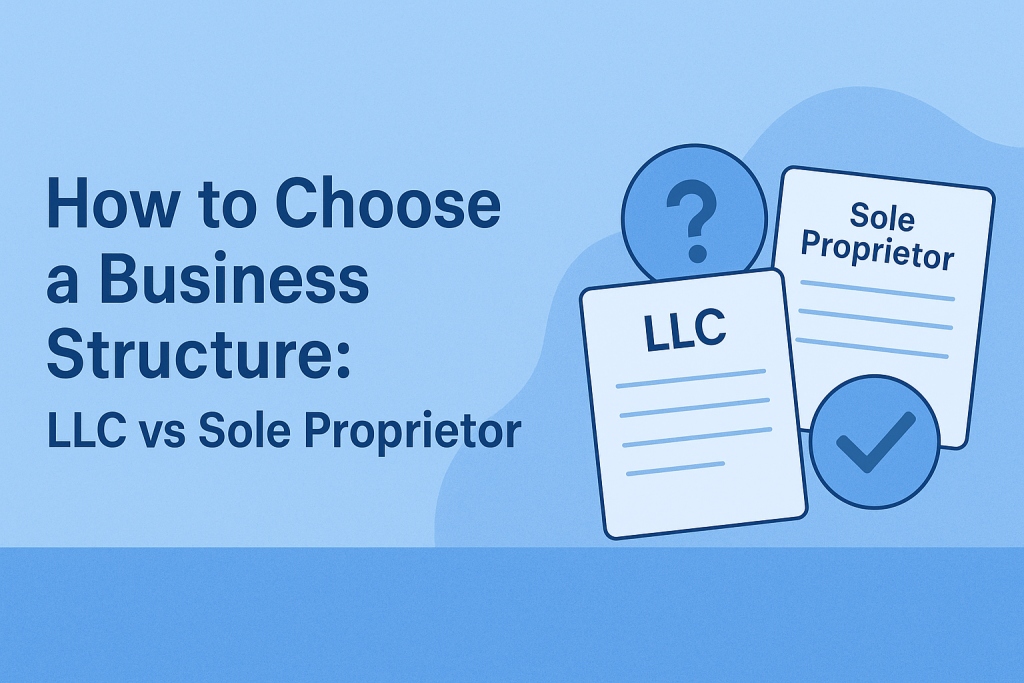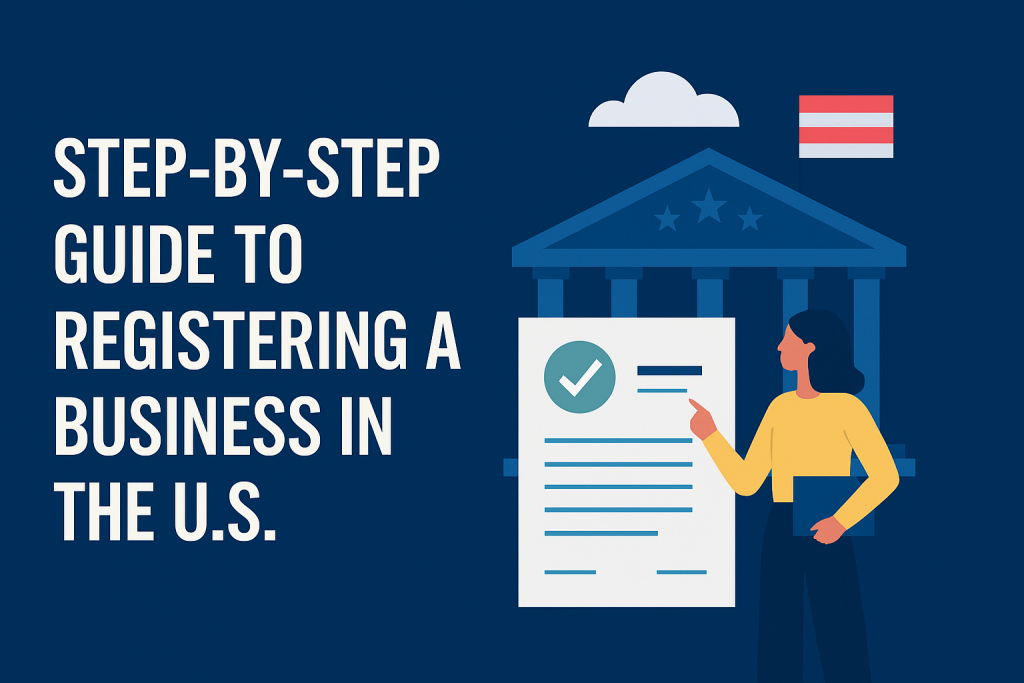Starting a small business involves more than choosing a name and opening your doors. One of the most critical early steps is making sure you’re legally registered and properly licensed to operate.
In this guide, we’ll walk through the legal and licensing basics for small businesses, including business structures, required permits, and how to stay compliant—so you can start strong and avoid costly mistakes later.
Why Legal and Licensing Requirements Matter
No matter how small your business is, complying with local, state, and federal laws is essential. Having the right licenses and registrations can:
- Protect your personal and business assets
- Build trust with customers and partners
- Help you open business bank accounts and apply for funding
- Prevent fines, legal action, or business closure
Skipping licenses might seem harmless—but it can lead to penalties, lost revenue, or legal trouble.
Step 1: Choose the Right Business Structure
Your business structure determines how you’re taxed, how much personal liability you have, and what paperwork you’ll need.
Common Small Business Structures
- Sole Proprietorship: Easiest to start, but offers no liability protection
- LLC (Limited Liability Company): Combines flexibility with liability protection
- Partnership: Two or more people share ownership
- Corporation (C or S Corp): Suitable for scaling, offers tax and ownership advantages
Most solo entrepreneurs start with a Sole Proprietorship or LLC. Check with your state for the easiest path to register.
Step 2: Register Your Business Legally
Once you’ve chosen your structure, you’ll likely need to register your business name and file formation documents with your state.
What You Might Need to File
- DBA (“Doing Business As”) if your business name is different from your legal name
- Articles of Organization (for LLCs) or Articles of Incorporation (for Corporations)
- Employer Identification Number (EIN) from the IRS (used for taxes and hiring employees)
Apply for your EIN for free on the IRS website—it only takes a few minutes.
Step 3: Understand Local Licensing Requirements
Licensing requirements vary by city, county, and state, and depend on your industry and location.
Common Business Licenses and Permits
- General Business License: Required in most cities/counties
- Zoning Permits: Needed if operating from home or specific commercial areas
- Home Occupation Permit: For home-based businesses
- Health Permits: If handling food, beverages, or personal care
- Sales Tax Permit: Required for selling physical goods
- Professional/Occupational Licenses: For legal, beauty, finance, etc.
Use tools like the SBA License & Permit Finder or your state’s business portal to check what’s required.
Step 4: Industry-Specific Regulations
Some industries have extra layers of legal compliance. If you’re in any of the following sectors, do extra research:
- Food & Beverage: Health inspections, alcohol licenses
- Retail (Online or Physical): Sales tax collection, product labeling laws
- Financial Services: Licensing, bonding, and federal regulations
- Construction/Trades: Contractor licenses, insurance requirements
- Childcare & Education: State-specific health and safety codes
If you’re unsure, call your local Small Business Development Center (SBDC) for free guidance.
Step 5: Stay Compliant Over Time
Licensing is not a one-and-done task. Many permits require annual or biennial renewal, and your business may need to update records when you:
- Change your business name or address
- Hire employees
- Add or change partners/owners
- Expand to new product lines or locations
Ongoing Compliance Tasks
- Renew licenses before they expire
- File annual reports (for LLCs and corporations)
- Keep business records up to date with state and tax authorities
- Stay current on zoning and safety regulations
Set calendar reminders for license renewals and annual filings to avoid penalties.
Final Thoughts
Getting your legal and licensing requirements right from the start gives your business the foundation it needs to grow safely and sustainably.
While the process may seem complicated, it’s completely manageable with a bit of research and planning. Take it one step at a time, and don’t hesitate to reach out to your local government or business resources for help.
Helpful Resources
- 📥 Download: Free Legal & Licensing Checklist for Small Business Owners
- 📞 Find Help: Contact your local SBA or SBDC office for one-on-one assistance
- 💬 Still unsure what you need? Drop your questions in the comments!


